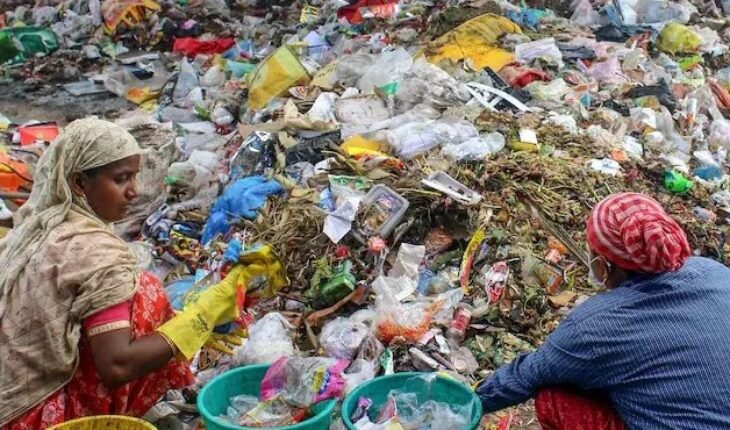Bengaluru: A new ‘garbage tax’ introduced by the Bruhat Bengaluru Mahanagara Palike (BBMP) from April 1 has stirred both acceptance and anxiety among Bengaluru’s residents and business owners. Officially known as the Solid Waste Management (SWM) User Fee, the charge is being collected along with annual property taxes, affecting more than 42 lakh households and commercial properties across the city.
The move aims to bolster the city’s waste management infrastructure, but its sudden introduction — coupled with sharp hikes in property taxes (20–35%) — has left many citizens questioning both its timing and transparency.
A Fee to Clean Up the City
The BBMP has defended the SWM user fee as a necessary step under the “polluter pays” principle. With plans to collect ₹750 crore annually, the civic body argues that the fee will support the financially burdened Bengaluru Solid Waste Management Limited (BSWML), which has been allocated ₹1,400 crore this year.
In return, the city expects sweeping improvements:
- 27 new transfer stations to eliminate garbage black spots
- A material recovery facility capable of processing 1,226 MTPD of waste
- New bio-CNG and biomethanisation plants
- Sanitary and animal waste processing units
- A pilot project for plastic and e-waste processing in collaboration with CIPET
“Citizens have long demanded better waste solutions. This is our response — to build infrastructure that can match Bengaluru’s growing needs,” said BBMP Chief Commissioner Tushar Girinath.
How Much Are Citizens Paying?
The SWM user fee varies based on property size and usage:
Residential rates per month:
- Up to 600 sq ft: ₹10
- 600–1,000 sq ft: ₹50
- 1,000–2,000 sq ft: ₹100
- 2,000–3,000 sq ft: ₹150
- 3,000–4,000 sq ft: ₹200
- Above 4,000 sq ft: ₹400
For commercial properties and large establishments, fees can run into several lakhs annually. Owners of vacant plots must also pay ₹0.60 per sq ft, regardless of BBMP service usage. Bulk waste generators without in-situ processing must shell out ₹12 per kg of waste, while those with composting facilities receive a ₹3 rebate per kg.
To avoid disproportionate burdens, BBMP has capped fees for rental properties at 30% and for mixed-use properties at 60% of the annual property tax. However, the fee will increase annually starting 2026.
Residents Say: ‘Where Is the Accountability?’
While many Bengalureans agree with the principle of paying for better waste management, the steep charges and lack of service guarantees have triggered concern.
One of the commercial property owner in Rajajinagar, is among those impacted. “I’m being charged ₹6,000 a month, but the waste in my area still lies uncleared. What assurance do we have that BBMP will deliver better services?”
Another who manages a 10,000-sqft warehouse in Jalahalli, echoed this concern: “We’ve been asked to pay ₹38,000 monthly — without any clarity on service levels or accountability. How does the BBMP justify such a high charge?”
An Already Pinched Public
The introduction of the garbage tax comes on the heels of rising costs across essential sectors in Karnataka — from milk and electricity to public transport. Citizens and civic groups argue that this latest move further burdens households already feeling the pinch.
Memebr of the Bengaluru NavaNirmana Party, questioned the necessity of the fee. “BBMP has funds. Where is the audit? Why aren’t SWM expenses being disclosed? Without transparency, why should citizens pay more?”
Adding political weight to the growing public dissent, BJP leader and former minister R. Ashoka took to social media to slam the government. In a post on X (formerly Twitter), Ashoka wrote in Kannada:
“The government, which failed to dispose of Bengaluru’s garbage and turned Silicon City into a garbage city, has now fixed fees for garbage collection as well. It seems that they have decided to fill their coffers in the name of garbage disposal.”
Private vs Public Systems in Conflict
The new system also clashes with the informal arrangements many apartment complexes and small housing societies had with private waste collectors. These were unofficially paying anywhere from ₹3,000 to ₹10,000 a month for waste disposal. Now, with BBMP’s user fee in place, many of these setups are in limbo.
Some bulk waste generators will be exempt — but only if they declare their facilities and pass verification checks on the tax portal.
Looking Ahead
BBMP has stated that from 2025–26, the SWM user fee will be integrated into the annual property tax, streamlining the collection process. However, whether this model leads to tangible improvements in waste management — or remains another burden on taxpayers — is a question the city is still grappling with.
As the garbage tax debate continues to unfold, one thing is clear: Bengalureans want cleaner streets, but they also want cleaner governance.






